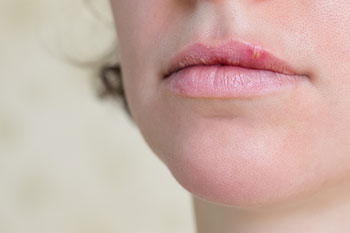You have probably heard of cold sores, if not experienced them occasionally yourself. A cold sore is a viral infection that appears as a small fluid-filled blister or group of blisters which lasts for a couple of weeks before going away. Once the blister opens, a scab is left that heals and usually doesn’t leave a scar.

Cause of Cold Sores
This virus is called herpes simplex type 1 (HSV-1), and once a person is infected, the virus remains inside the body for life. This virus is contagious and can be passed from person to person. Typically, people will are infected at an early age with the cold sore virus. Once infected, cold sores may occasionally appear throughout life. Various reasons may cause a cold sore to appear in a person with the HSV-1 virus, including stress, fatigue, fever, hormonal changes, exposure to sunlight or wind and injury to the skin.
Symptoms of Cold Sores
A person may experience tingling or itching in the area a day or two before. Then, a small and painful lump appears on the lip or surrounding area. This lump will turn into a fluid-filled blister. Less commonly, these blisters can form around the nose or even inside the cheeks. There may be one or several blisters. The blisters will open after a week or two, leaving scabs in their place that eventually heal. Reoccurrence tends to happen in the same spot. Outbreak symptoms may be fever, sore gums and throat, swollen lymph nodes and muscle aches.
Risk Factors for Cold Sores
Any person could be at risk for cold sores. Most adults carry the HSV-1 virus, even if they’ve never developed a cold sore. People with a weakened immune system have more of a risk of complications from the virus, such as patients with HIV/AIDS, eczema, and undergoing cancer therapy.
Prevention for Cold Sores
If you are at high risk for cold sores, your doctor may prescribe you an antiviral medication to take regularly. Try to maintain low stress, eat a balanced diet and use sunblock in areas that tend to be susceptible to cold sores. To prevent spreading core sores, don’t share utensils, maintain clean hands and don’t come into close contact, such as kissing when cold sores are still in the blister phase.
If you have any questions about cold sores or what to expect when you have one, we encourage you to contact us today to schedule an appointment.
